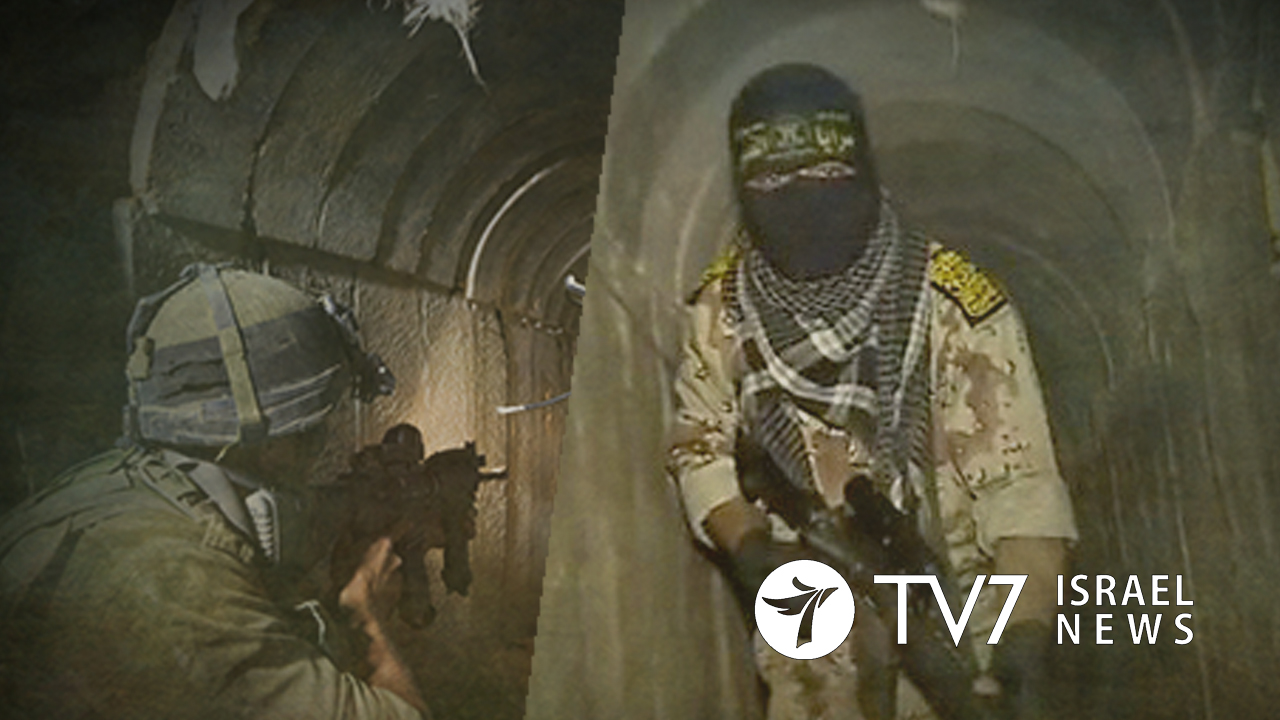Following Israel’s warning toward the Islamist Hamas organization in the Gaza Strip, which we reported on TV7 Israel News last night, not to try to foil its construction of a defensive border barrier designed to thwart attacks from both the surface and underground tunnels; Hamas went on the defensive in which it accused Israel of fabricating reports on the Islamist group, by alleging that the internationally recognized terror group is currently reconstructing an attack tunnel network, which was destroyed by the IDF in the last war between Hamas and Israel, allegations that are to be used as a “pretext” for a possible new round of fighting between Israel and the Islamist organizations in the Palestinian enclave.
Israel announced it had mapped terror emplacements hidden under civilian sites in the Palestinian enclave that may be attacked in the next round of fighting with the Islamist organizations in the Gaza Strip, that after reports indicated an increase of efforts by the Islamist Hamas organization to establish anew the attack tunnels for a future confrontation with the Jewish state. The unusually detailed Israeli threat followed a rocket launch earlier this week, on Tuesday, which caused no injuries in Israel and prompted an aerial response against two Hamas facilities that Palestinian sources said wounded seven people. The reports on Hamas’s efforts to restore its attack capabilities caused the IDF to accelerate its construction work on its defensive border barriers, which is expected to be completed within two years and protect a stretch of 60 kilometers, or 37 miles. The security barrier will also extend into the sea with a breakwater that the IDF will build on the maritime border next to Zikim, which is located in the Hof Ashkelon regional council – an area that the Islamist organizations of the Palestinian enclave regularly target with both rockets and mortar fire.
Meanwhile, Hamas is reportedly considering advancing an unprecedented move in the Gaza Strip in what is believed to be a response to the economic sanctions imposed on the Islamist group by the Western-backed Palestinian Authority. This is a scenario that has been taken into account in Israel and could lead to chaos in the Palestinian enclave. A source within Hamas said that the organization’s military wing recently submitted a proposal to the organization’s political leadership, suggesting Hamas create a political and security vacuum in the Palestinian enclave by waiving its management of the Gaza Strip. In such a scenario, Hamas will not hand the reins-of-power over to the Palestinian Authority, but implement a four-part plan that will create a vacuum in the Strip, after Gaza’s Police Forces will continue to function together with local institutions that will provide services to Gaza residents. At the same time, security forces in the strip that are subordinate to Hamas will carry out civilian missions but not security ones. Hamas’s military wing would then fill the security vacuum in Gaza, by assuming control over the security of the enclave and deploying its forces throughout the territory, along with the smaller military forces of other Islamist factions. The proposal is perceived as a threat to Abbas, as it pushes to create a military regime in Gaza without civilian rule, a reality that Israeli security officials told TV7 may lead to a military escalation against Israel.
